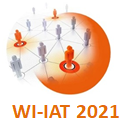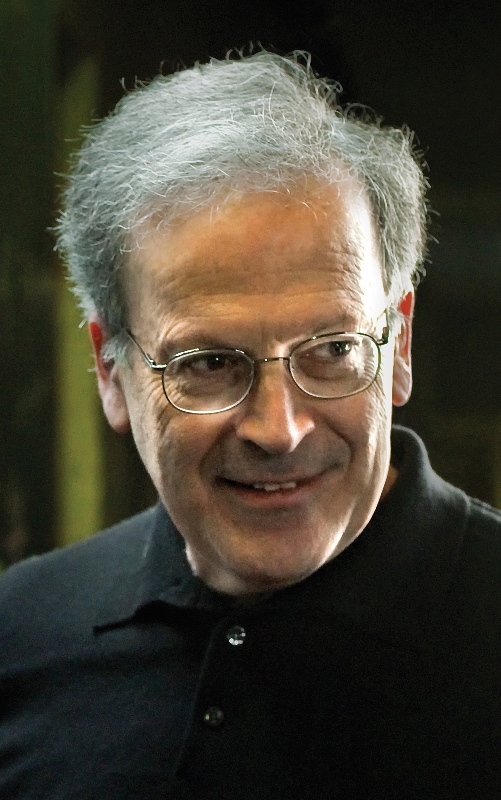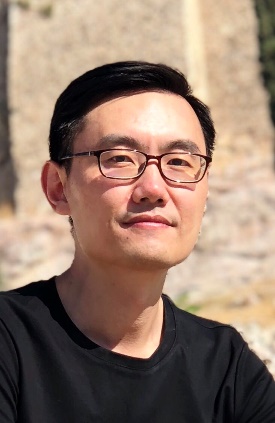

Why is it so hard to make self-driving cars? (Trustworthy autonomous systems)
Joseph Sifakis
Turing Award Laureate ![]()
Member of the French Academy of Sciences, Member of the French National Academy of Engineering
University of Grenoble, France
Abstract:Why is self-driving so hard? Despite the enthusiastic involvement of big technological companies and the massive investment of many billions of dollars, all the optimistic predictions about self-driving cars “being around the corner” went utterly wrong. I argue that these difficulties emblematically illustrate the challenges raised by the vision for trustworthy autonomous systems. These are critical systems intended to replace human operators in complex organizations, very different from other intelligent systems such as game-playing robots or intelligent personal assistants. I discuss complexity limitations inherent to autonomic behavior but also to integration in complex cyber-physical and human environments. I argue that existing critical systems engineering techniques fall short of meeting the complexity challenge. I also argue that emerging end-to-end AI-enabled solutions currently developed by industry, fail to provide the required strong trustworthiness guarantees. I advocate a hybrid design approach combining model-based and data-based techniques and seeking tradeoffs between performance and trustworthiness. I also discuss the validation problem emphasizing the need for rigorous simulation and testing techniques allowing technically sound safety evaluation. I conclude that building trustworthy autonomous systems goes far beyond the current AI vision. To reach this vision, we need a new scientific foundation enriching and extending traditional systems engineering with data-based techniques.
Short Bio: Prof. Joseph Sifakis is Emeritus Senior CNRS Director at Verimag. His current research interests cover fundamental and applied aspects of autonomous system design. He is the founder of the Verimag laboratory in Grenoble, which he directed for 13 years. He has been a full professor at EPFL for the period 2011-2016. In 2007, he received the Turing Award for his contribution to the theory and application of model checking. Joseph Sifakis is a member of the French Academy of Sciences, a member of the French National Academy of Engineering, a member of Academia Europea, a member of the American Academy of Arts and Sciences, a member of the National Academy of Engineering and a member of the Chinese Academy of Sciences.

How to Augment Learning with Reasoning
Leslie Valiant
Turing Award Laureate ![]()
Member of the United States National Academy of Sciences, Fellow of the Association for the Advancement of Artificial Intelligence
Harvard University, USA
Abstract:Learning is a cognitive phenomenon that has proved amenable both to theoretical analysis and exploitation as a technology. However, not all of cognition can be accounted for directly by learning. The question we ask here is whether one can build on the success of machine learning to address the broader goals of artificial intelligence. We regard reasoning as the major component of cognition that needs to be added. We suggest that the central challenge therefore is to unify the formulation of these two phenomena, learning and reasoning, into a single framework with a common semantics. In such a framework one would aim to learn rules with the same success that predicates can be learned by means of machine learning, and, at the same time, to reason with the rules with guarantees analogous to those of standard logic. We discuss how Robust Logic fulfils the role of such a theoretical framework. We also discuss the challenges of testing this experimentally on a significant scale, for tasks where one hopes to exceed the performance offered by learning alone.
Short Bio: Leslie Valiant was educated at King's College, Cambridge; Imperial College, London; and at Warwick University where he received his Ph.D. in computer science in 1974. He is currently T. Jefferson Coolidge Professor of Computer Science and Applied Mathematics in the School of Engineering and Applied Sciences at Harvard University, where he has taught since 1982. Before coming to Harvard he had taught at Carnegie Mellon University, Leeds University, and the University of Edinburgh. His work has ranged over several areas of theoretical computer science, particularly complexity theory, learning, and parallel computation. He also has interests in computational neuroscience, evolution and artificial intelligence and is the author of two books, Circuits of the Mind, and Probably Approximately Correct. He received the Nevanlinna Prize at the International Congress of Mathematicians in 1986, the Knuth Award in 1997, the European Association for Theoretical Computer Science EATCS Award in 2008, and the 2010 A. M. Turing Award. He is a Fellow of the Royal Society (London) and a member of the National Academy of Sciences (USA).

Can We Replace Programming Languages by Natural Instruction?
Tom M. Mitchell
Member of the United States National Academy of Engineering, Fellow of the American Association for the Advancement of Science, Fellow the Association for the Advancement of Artificial Intelligence
Carnegie Mellon University, USA
Abstract:Now that computers are finally able to have simple conversations, it is time to explore the potential for replacing programming languages with natural language instruction.
For example, less than 1% of phone users can program their phone to do new things for them, but if this line of research succeeds we might change that to 99%. This talk will describe our recent research exploring
how we might enable phone users to teach their phones to perform new commands, using natural language interaction together with demonstrations. This line of research represents a paradigm of "conversational machine learning"
that complements current data-intensive statistical approaches. If successful, it has implications for many types of computer interfaces, from giving users more control over their smart phones, to a providing a new generation of teachable web browsers.
This talk covers joint work with Igor Labutov, Forough Arabshahi, Brad Meyers, Shashank Srivastava, Toby Li, Jennifer Lee, Antoine Bosselut, and Yeijin Choi.
Short Bio:Tom M. Mitchell is the Founders University Professor at Carnegie Mellon University, where he created the world's first Machine Learning Department. His research includes machine learning approaches to natural language understanding, and brain imaging studies of natural language understanding in humans. Mitchell is an elected member of the U.S. National Academy of Engineering ßand the American Academy of Arts and Sciences, and a Fellow and Past President of the Association for the Advancement of Artificial Intelligence (AAAI). He is interested in societal impacts of computer science, recently co-chaired a U.S. National Academies study on “Information Technology, Automation, and the Workforce,” and has recently testified to several Congressional forums on the impacts of AI on society.

Modular design patterns for systems that learn and reason
Frank van Harmelen
Member of the Dutch Royal Academy of Sciences, Member of the Royal Holland Society of Sciences and Humanities, Fellow of the European Association for Artificial Intelligence
Vrije Universiteit Amsterdam, the Netherlands
Abstract: The combination of data-driven techniques from machine learning with symbolic techniques from knowledge representation is recognised as one of the grand challenges of modern AI. We propose a set of compositional design patterns to describe a large variety of systems that combine statistical techniques from machine learning with symbolic techniques from knowledge representation. As in other areas of computer science (knowledge engineering, software engineering, ontology engineering, process mining and others), such design patterns help to systematize the literature, clarify which combinations of techniques serve which purposes, and encourage re-use of software components. We have validated our set of compositional design patterns against a large body of recent literature.
Short Bio: Frank van Harmelen has a PhD in Artificial Intelligence from Edinburgh University, and has been professor of AI at the Vrije Universiteit Amsterdam since 2001, where he leads the research group on Knowledge Representation. He was one of the designers of the knowledge representation language OWL, which is now in use by companies such as Google, the BBC, New York Times, Amazon, Uber, Airbnb, Elsevier and Springer Nature among others. He co-edited the standard reference work in his field (The Handbook of Knowledge Representation), and received the Semantic Web 10-year impact award for his work on the Sesame RDF triple store. He is a Fellow of the European Association for Artificial Intelligence, Member of the Dutch Royal Academy of Sciences (KNAW), of the Royal Holland Society of Sciences and Humanities (KHWM) and of the Academia Europaea, and is adjunct professor at Wuhan University and Wuhan University of Science and Technology in China.

Trusted data sharing – incentivizing collaboration and rights to be forgotten in machine learning
Bryan Low
National University of Singapore, Singapore
Abstract:In this talk, Dr. Bryan Low will present his preliminary research efforts in trusted data sharing. Specifically, he will discuss how we can perform data valuation, incentivize multiple parties with data to collaborate in building higher-quality models, and unlearn a trained machine learning model from data to be erased (e.g. personal data, malicious data) for compliance with regulations such as the Personal Data Protection Act, General Data Protection Regulation, and the future of personal data ownership.
Short Bio: Dr. Bryan Low is an Associate Professor of Computer Science at the National University of Singapore and the Deputy Director of AI Research at AI Singapore. He obtained the B.Sc. (Hons.) and M.Sc. degrees in Computer Science from National University of Singapore, Singapore, in 2001 and 2002, respectively, and the Ph.D. degree in Electrical and Computer Engineering from Carnegie Mellon University, Pittsburgh, Pennsylvania, in 2009. His research interests include probabilistic & automated machine learning, planning under uncertainty, and multi-agent/robot systems.
Dr. Low is the recipient of the (1) Andrew P. Sage Best Transactions Paper Award for the best paper published in all 3 of the IEEE Transactions on Systems, Man, and Cybernetics - Parts A, B, and C in 2006; (2) National University of Singapore Overseas Graduate Scholarship for Ph.D. studies in Carnegie Mellon University (CMU) in 2004-2009; (3) Singapore Computer Society Prize for Best M.Sc. Thesis in School of Computing, National University of Singapore in 2003; and (4) Faculty Teaching Excellence Award in School of Computing, National University of Singapore in 2017-2018.
Dr. Low has served as a World Economic Forum’s Global Future Councils Fellow for the Council on the Future of Artificial Intelligence and Robotics from Sep 2016 to Jun 2018 and an IEEE Robotics & Automation Society (RAS) Distinguished Lecturer for the IEEE RAS Technical Committee on Multi-Robot Systems in Mar 2019. He has served as an organizing chair for the IEEE RAS Summer School on Multi-Robot Systems in Jun 2016 and the AI Summer Schools in Jul 2019 and Aug 2020. Dr. Low has also served as associate editors, area chairs and program committee members, and reviewers for premier AI (specifically, multiagent systems, AI planning, robotics, machine learning) conferences: IJCAI, AAAI, ECAI, AAMAS, ICAPS, RSS, IROS, ICRA, CoRL, NeurIPS, ICML, AISTATS, ICLR and journals: TKDE, JMLR, JAIR, MLJ, TNNLS, T-ASE, IJRR, T-RO, AURO, JFR, TOSN, JAAMAS. He was the top 5% reviewer for ICML 2019 and top 33% reviewer for ICML 2020.

Online social networks bot detection services and technologies: How can social bots be detected in today’s online mistrusted platforms?
Athena Vakali
Aristotle University of Thessaloniki, Greece
Abstract:Popular Online Social Networks platforms offer a fertile ground for open communication among humans, however, they also attract many bots and automated accounts "disguised" as human users. Typically, such accounts favor malicious activities such as phishing, public opinion manipulation and hate speech spreading, to name a few. Although several Artificial Intelligence (AI) bot detection methods have been implemented, the justification of bot classification and characterization remains quite opaque and AI decisions lack in ethical responsibility. Most of these approaches operate with AI black-boxed algorithms and their efficiency is often questionable.
Prof. Vakali will reveal crucial research outcomes in the battle against social bots “in the wild”. Social bots detection under interpretable, responsible, and AI methods will be showcased, to open ideas and dialogues for effective online disinformation services. In this talk we will further explore indicative services, such as "Bot-Detective", a web service that takes into account both the efficient detection of bot users and the interpretability of the results. Main topics are : i) novel explainable bot-detection approaches, to offer interpretable, responsible, and AI driven bot identification in Twitter, ii) publicly available bot detection Web service examples which integrates an explainable ML framework along with users feedback functionality under an effective crowdsourcing mechanism; iii) availability of annotated dataset by exploiting Twitter's rules and existing tools.
Short Bio: Athena Vakali is a Professor at the School of Informatics, Aristotle University, Greece, where she leads the Laboratory on Data and Web science (Datalab https://datalab.csd.auth.gr/). She holds a PhD degree in Informatics (Aristotle University), a MSc degree in Computer Science (Purdue University, USA), and a BSc degree in Mathematics. Her current research interests include Data Science topics with emphasis on big data mining and analytics, Next generation Internet applications and enablers, online social networks mining, as well as on online sources data management on the cloud, the egde and decentralized settings. She has supervised 10 completed PhD theses and she has been awarded for her educational and research work which is extended with mentoring and students empowerment (ACM, ACMW). Prof. Vakali has published over than 170 papers in refereed journals and Conferences (her publications received over 8530 citations with h-index=39 according to gscholar). She is the Co-EiC of “Web Intelligence” WIC journal and she is at the editorial board of "Computers & Electrical Engineering" Journal, and ICST Transactions on Social Informatics. She has coordinated and participated in more than 30 research projects in EU FP7, H2020, international and national projects. She has served as a member in the EU Steering Committee for the EU Future Internet Assembly (2012-14) and she has been appointed as Director of the Graduate Program in Informatics, Aristotle University (2014-15). She has co-chaired major Conferences Program Committees such as : PC co-chair at the ACM/IEEE Web Intelligence Conference 2019, the EU Network of Excellence 2nd Internet Science Conference (EINS 2015), 15th Web Information Systems Engineering (WISE 2014),etc. More info at : https://datalab.csd.auth.gr/avakali/.

Unleash the Power of Label Space: Label Enhancement for Label Distribution Learning
Xin Geng
Southeast University, China
Abstract:In the existing machine learning literature, the labels of the training examples are usually just used in the calculation of loss. Most sophisticated operations are actually conducted on the instances, such as feature extraction, feature selection, manifold embedding, dimensionality reduction, etc. Researchers take obviously more efforts in the feature space than in the label space, which is not strange since labels are traditionally represented by logical values, i.e., 1 if the label is relevant to the instance and 0 otherwise. However, if we can somehow transform the logical label vectors into real-valued label vectors, then we can expect much more profound analysis in the label space.
Label distribution learning (LDL) is a recently proposed machine learning paradigm, where each instance is labeled by a real-valued label vector called label distribution. Each element in the label distribution indicates the description degree of the corresponding label to the instance. Considering most existing data sets are annotated by logical labels, we need a way to transform logical labels into label distributions, which is called label enhancement. Label enhancement could unleash the power of label space: many analytic operations meant for the feature space are now applicable to the label space.
Short Bio: Xin Geng is currently a professor and the dean of School of Computer Science and Engineering at Southeast University, China. He is an awardee of the National Science Fund for Distinguished Young Scholars. He received the B.Sc. (2001) and M.Sc. (2004) degrees in computer science from Nanjing University, China, and the Ph.D. (2008) degree in computer science from Deakin University, Australia. His research interests include machine learning, pattern recognition, and computer vision. He has published over 100 refereed papers in these areas, including those published in prestigious journals and top international conferences. He has been an Associate Editor of IEEE T-MM, FCS and MFC, a Steering Committee Member of PRICAI, a Program Committee Chair for conferences such as PRICAI’18, VALSE’13, etc., an Area Chair for conferences such as CVPR’21, ACMMM'18, ICPR’20, and a Senior Program Committee Member for conferences such as IJCAI, AAAI, ECAI, etc. He is a Distinguished Fellow of IETI and a Senior Member of IEEE.
| Edward Feigenbaum(Turing Award Laureate) | WI-IAT 2001 |
| Lotfi A. Zadeh | WI-IAT 2003 |
| John McCarthy (Turing Award Laureate) | WI-IAT 2004 |
| Tom M. Mitchell | WI-IAT 2004 |
| Richard M. Karp (Turing Award Laureate) | WI-IAT 2007 |
| Yuichiro Anzai | WI-IAT 2011 |
| Edward Feigenbaum(Turing Award Laureate) | WI-IAT 2012 |
| John Hopcroft (Turing Award Laureate) | WI-IAT 2013 |
| Andrew Chi-Chih Yao (Turing Award Laureate) | WI-IAT 2014 |
| Joseph Sifakis (Turing Award Laureate) | WI-IAT 2015 |
| Butler Lampson (Turing Award Laureate) | WI 2016 |
| Leslie Valiant (Turing Award Laureate) | WI 2016 |
| Raj Reddy (Turing Award Laureate) | WI 2017 |